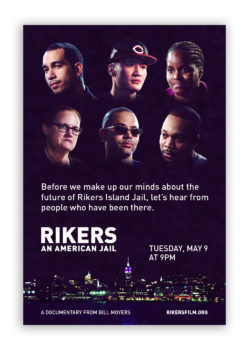States of Incarceration
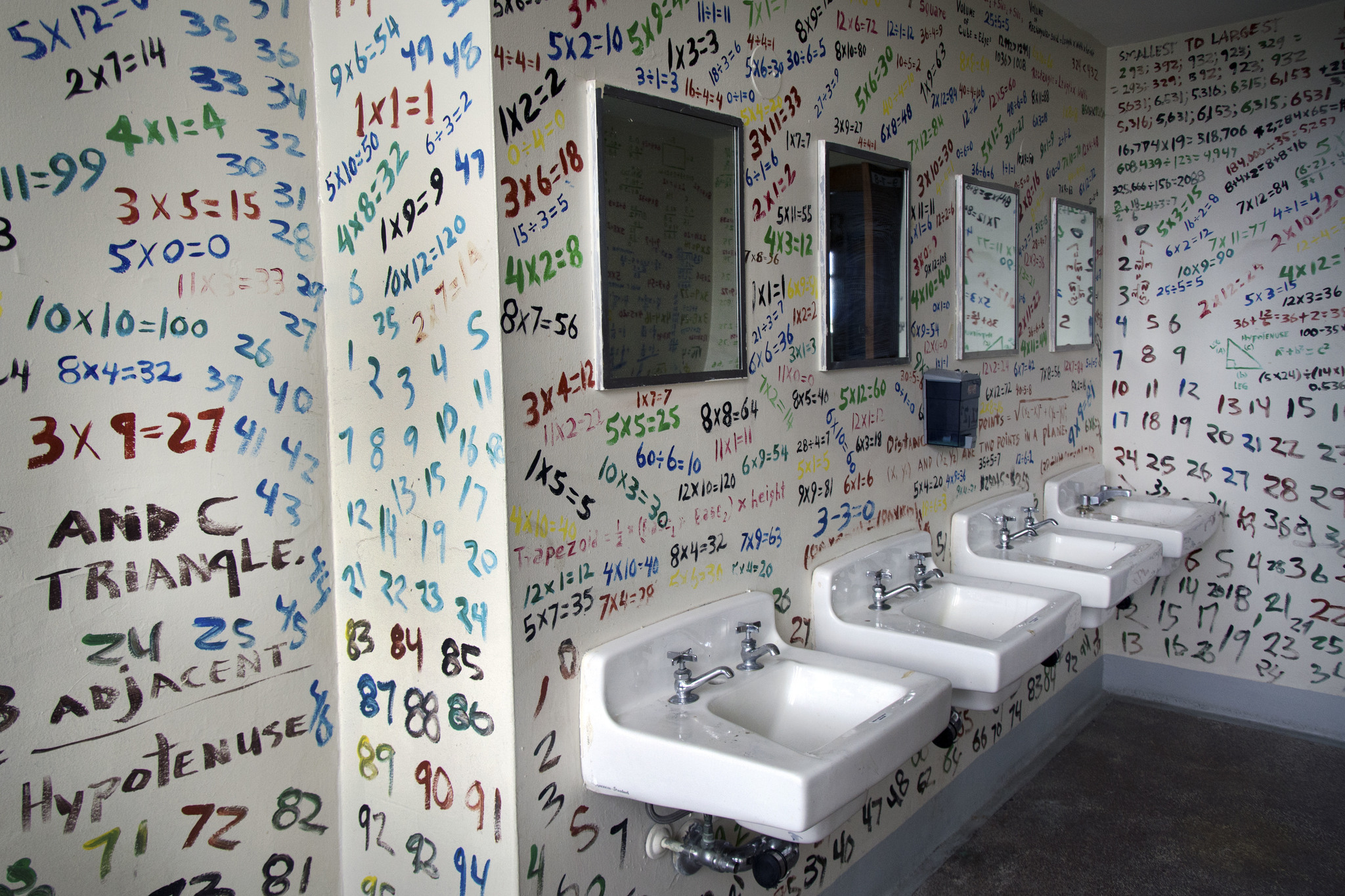
D. Trufelman '15
September 2–October 11, 2017
Payne Room, Tang Teaching Museum,
Skidmore College
Exhibition | Calendar of Events
Exhibition
A “National Dialogue of Local Stories,” States of Incarceration is the first national traveling exhibition and coordinated public dialogue to explore the history and future of mass incarceration in the United States. The New School’s Humanities Action Lab, with 20 college and university partners, connected 500 university students with those deeply affected by incarceration and shares their findings in a show that launched in New York City in April 2016.
The exhibition and project, the culmination of two years of planning and discussion
between the communities, is a national public reckoning with one of the most pressing
issues facing our country. Using many tools of truth and reconciliation processes,
communities explored the deep historical roots of incarceration, shared personal stories
and strategized ways of enacting policy change. In each location, the traveling exhibition
and public programs focus on an issue of incarceration unique to that community. Skidmore
College students, working with Associate Professor Eric Morser since the fall 2015
course "Adventures in Public History: The Prison Project," focus on Mount McGregor
prison, a former hotel and sanatorium in Wilton, New York, which was closed by the
state in 2014. Their emphasis has been on rehabilitation.
The project and exhibition are supported by grants from the National Endowment for
the Humanities, the Andrew W. Mellon Foundation, Skidmore College's Project VIS, the
John B. Moore Documentary Studies Collaborative and the History Department. Additional
event co-sponsorships come from the Offices of the Dean of the Faculty/VPAA, Departments
of Education, English, and Sociology and the Student Speakers' Bureau.
Click here to be taken to the Tang Teaching Museum for details about the exhibition.
Click here to learn more about States of Incarceration.
CALENDAR OF EVENTS
To bring the dialogue and debates about incarceration in the United States to a broad community, we have organized a series of events to connect the exhibition to the campus and community, and to futher dialogue and discussion with a goal of achieving a more just society.
September 14: Panel Discussion:"After Incarceration: Stories from Those Who've Lived it"
September 15: Gallery Talk with faculty and student curators Eric Morser, Deven Catalano, Meaghan McDonald and
Isaac Selchaif
September 21: Lecture and reading with Kekla Magoon: "Behind the Headlines: New Perspectives and Empathy in How It Went Down and the 21st-Century Civil Rights Movement"
September 28: "Stories That Speak to Us": A conversation with Piper Anderson and Sylvia Ryerson
September 29: Mass story lab workshop: "Interviewing and Oral Histories for Social Justice," with Piper Anderson (Mass
Story Lab)
September 30: Community Conversation:
-
- Mass Story Lab: What is a Prison for? Facilitated dialogue with story agents and witnesses
- Gallery talk with faculty and student curators Eric Morser, Deven Catalano, Meaghan McDonald and Isaac Selchaif
- Screening of Rikers: An American Jail followed by Q&A with Johnny Perez and Damian Stapleton
October 5: Poetry lab with Cara Benson, Seán Dalpiaz and Johnny Perez
October 6: Accelerator Dialogue Series with Elizabeth Hinton, Duron Jackson and Johnny Perez. Moderated by Isolde Bielmaier.
Click on the links for additional details.
All events are hosted in the Tang Teaching Museum with an opportunity to visit the
exhibition, unless otherwise indicated
Panel Discussion: “After Incarceration: Stories From Those Who’ve Lived It”
Thursday, September 14, 7 p.m. (Somers Room)
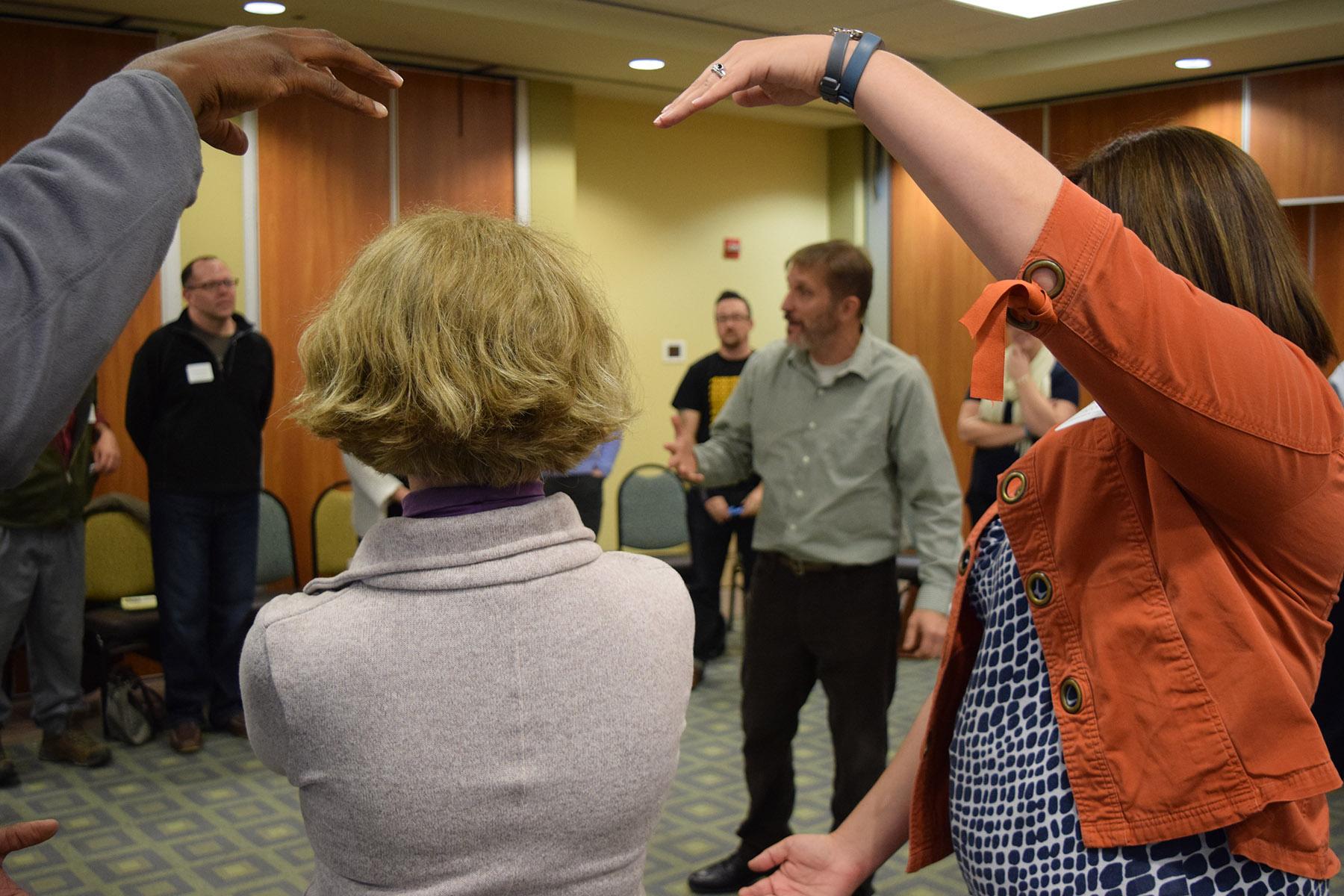
Restorative justice training on campus
A panel with Sheila Rule, Jasmyn Story ’15 and Frank Zarro for a discussion of mass incarceration from the perspective of people who have experienced it and are working to end it. They will share stories of what it is like to be incarcerated and its impact on family and loved ones. They know firsthand the challenges of finding work, housing and social support while confronting the stigma of incarceration. They will discuss how to help the formerly incarcerated regain their sense of dignity and success when they return to the community. The panel will consider alternatives to traditional punishment, especially restorative justice, community justice, and other methods to disrupt the school-to-prison pipeline and racial disparities that plague the criminal justice system.
Click here to learn more about restorative justice, and here to learn about community justice, including When People Work, a new social entrepreneurship helping formerly incarcerated people find employment.
Introduction and moderation by professor David Karp, Department of Sociology, and director, Project on Restorative Justice. Co-sponsored by the Department of Sociology. Reception follows the event.
Gallery Talk: “Closing a Prison, Deferring a Dream”
Friday, September 15, noon, Payne Room
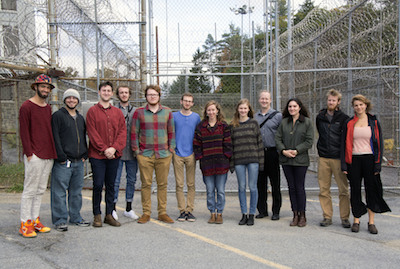 History professor Eric Morser and student curators Deven Catalano, Meaghan McDonald
and Isaac Selchaif will discuss how they became involved in the project, their efforts
to reconstruct the history of Mount McGregor, the power of oral history to reveal
the prison's hidden stories and how they transformed a story of reform dreams into
a museum exhibit. (Repeated on Saturday, September 30.)
History professor Eric Morser and student curators Deven Catalano, Meaghan McDonald
and Isaac Selchaif will discuss how they became involved in the project, their efforts
to reconstruct the history of Mount McGregor, the power of oral history to reveal
the prison's hidden stories and how they transformed a story of reform dreams into
a museum exhibit. (Repeated on Saturday, September 30.)
The medium-security facility had a long history of creative rehabilitation. In the 1910s, it was a tuberculosis sanitarium; after WWII, it welcomed convalescing veterans. As a prison it developed the state’s first alcohol- and substance-abuse treatment program. As the War on Drugs increased prison populations in the 1980s, and state politicians cut funding for carceral programs in the 1990s, teachers, counselors and prisoners themselves empowered incarcerated men to change their lives. Programs provided incarcerated men with support to survive and thrive; ironically, many lost access to such support upon release. (Photo of Morser and students at Mount McGregor, Dorothea Trufelman '15)
Lecture and Reading with Kekla Magoon
September 21, 2016, 7 p.m., Gannett Auditorium, Palamountain Hall
Behind the Headlines: New Perspectives and Empathy in How It Went Down and the 21st Century Civil Rights Movement
To open a newspaper today is to encounter endless stories about police shootings,
protest marches and unabashed white supremacy on display. In this challenging landscape,
how can we go "behind the headlines?" Join author Kekla Magoon to better understand
the impact of race and bias on individuals and communities, and how social and political
context inspire and continues to inform her novels.
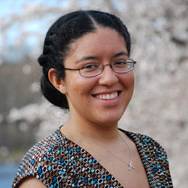
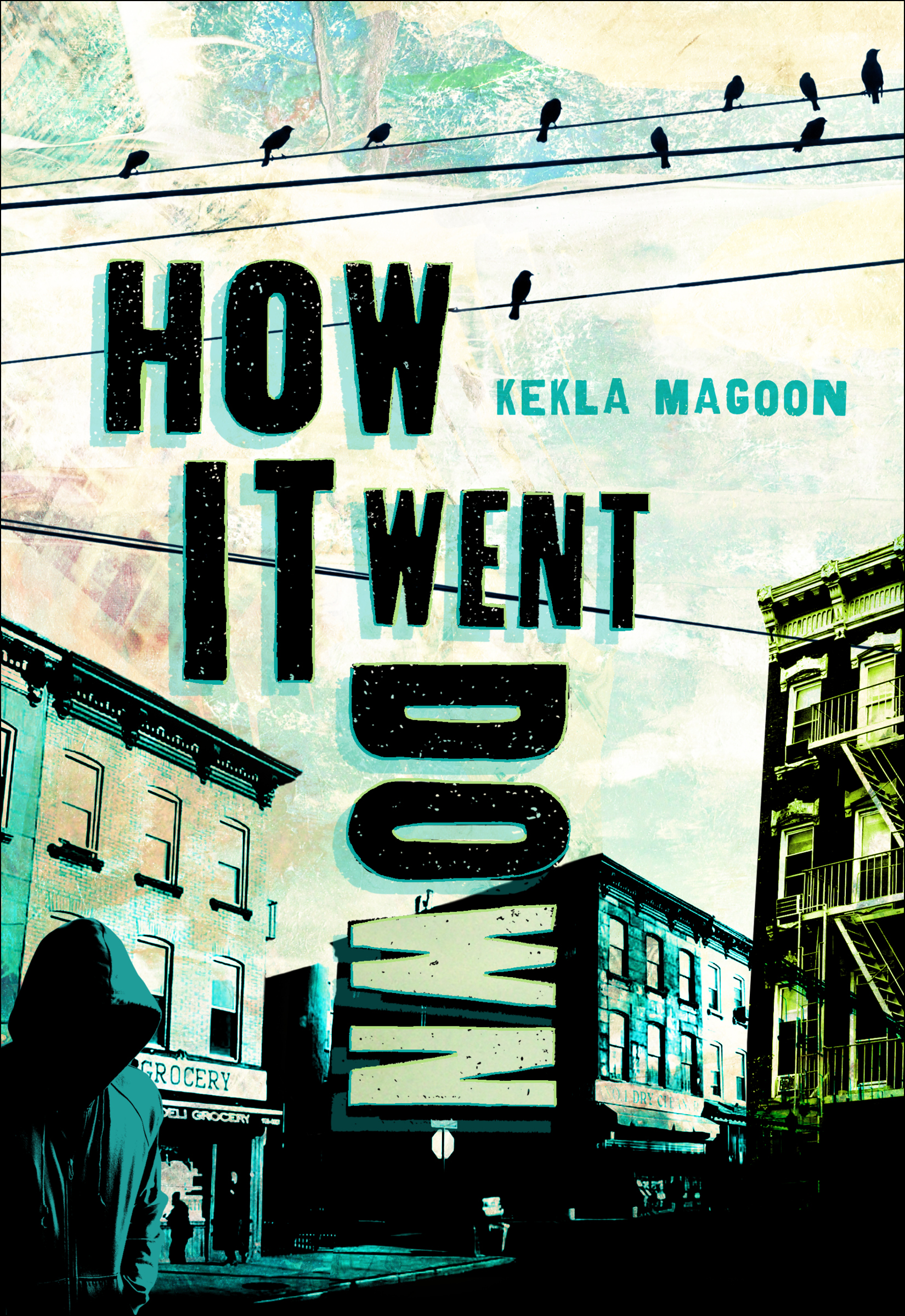 Young-adult author Kekla Magoon is the author of nine young adult novels, including How It Went Down, the story of a 16-year old African-American boy gunned down by a white man and how
people struggle to make sense of the shooting. She has received (among other honors)
an NAACP Image Award, the John Steptoe New Talent Award, two Coretta Scott King Honors,
and she been long-listed for the National Book Award. She also writes nonfiction on
historical topics. She holds a B.A. from Northwestern University and an M.F.A. in
writing from Vermont College of Fine Arts, where she now serves on faculty. Visit
her online at keklamagoon.com
Young-adult author Kekla Magoon is the author of nine young adult novels, including How It Went Down, the story of a 16-year old African-American boy gunned down by a white man and how
people struggle to make sense of the shooting. She has received (among other honors)
an NAACP Image Award, the John Steptoe New Talent Award, two Coretta Scott King Honors,
and she been long-listed for the National Book Award. She also writes nonfiction on
historical topics. She holds a B.A. from Northwestern University and an M.F.A. in
writing from Vermont College of Fine Arts, where she now serves on faculty. Visit
her online at keklamagoon.com
Book signing and reception following the talk in partnership with Northshire Bookstore.
Presentation introduced by Hope Casto, Education Department, Skidmore College.
Mass Story Lab with Piper Anderson
September 28–30
September 28, 2017, 7 p.m., Davis Auditorium, Palamountain Hall
DISCUSSION: Stories That Speak to Us: Piper Anderson and Sylvia Ryerson
Join Piper Anderson, founder of the Mass Story Lab, and documentarian Sylvia Ryerson as they discuss the power of storytelling as an instrument of justice.
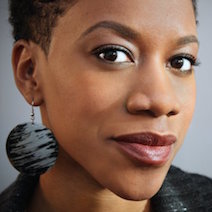 Piper Anderson is a a writer, educator and cultural worker who has spent more than 16 years leveraging
the tools of art-making and community engagement to create social impact. Her work
has taken her to more than 30 U.S cities, Mexico and Rwanda, delivering creative responses
to racial and gender injustice. Her commitment to ending mass incarceration began
in 2001. Realizing the destructive impact of prisons and policing on her community,
Anderson became Blackout Arts Collective’s Lyrics on Lockdown national tour coordinator and directed the cultural campaign that reached more than
25 U.S. communities, creatively catalyzing a dialog about the effects of the prison
system on communities of color. In spring 2016, Anderson was awarded a TED Residency
to develop an innovative art-and-design project called Mass Story Lab. One of her proudest moments was being a part of the founding of NYU’s prison education
program, which offers an associate's degree to men at Wallkill correctional facility.
She continues to serve on the faculty and steering committee for that program. Anderson
attended the New School, where she was a Riggio Writing Democracy fellow and received
her master's in applied theater from CUNY’s School of Professional Studies. Click
here to see a video of the Lab at work.
Piper Anderson is a a writer, educator and cultural worker who has spent more than 16 years leveraging
the tools of art-making and community engagement to create social impact. Her work
has taken her to more than 30 U.S cities, Mexico and Rwanda, delivering creative responses
to racial and gender injustice. Her commitment to ending mass incarceration began
in 2001. Realizing the destructive impact of prisons and policing on her community,
Anderson became Blackout Arts Collective’s Lyrics on Lockdown national tour coordinator and directed the cultural campaign that reached more than
25 U.S. communities, creatively catalyzing a dialog about the effects of the prison
system on communities of color. In spring 2016, Anderson was awarded a TED Residency
to develop an innovative art-and-design project called Mass Story Lab. One of her proudest moments was being a part of the founding of NYU’s prison education
program, which offers an associate's degree to men at Wallkill correctional facility.
She continues to serve on the faculty and steering committee for that program. Anderson
attended the New School, where she was a Riggio Writing Democracy fellow and received
her master's in applied theater from CUNY’s School of Professional Studies. Click
here to see a video of the Lab at work.
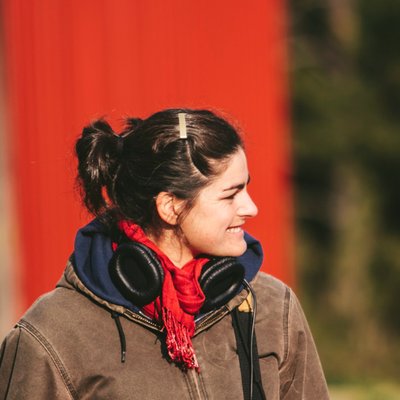 Sylvia Ryerson is a radio producer, sound artist and musician. For nearly a decade her work has
probed the overlapping crises of mass incarceration, rural poverty and environmental
destruction. Her work has been featured on Here and Now, the Takeaway, the Marshall Project, Transom.org, the Third Coast Festival and the BBC. After graduating from Wesleyan
University, Ryerson moved to Eastern Kentucky to work at Appalshop, the renowned documentary arts center
and home of WMMT-FM community radio. She served as a reporter and director of public
affairs at WMMT and led the production of Calls from Home, a nationally recognized radio program sending messages from family members to their
loved ones incarcerated in rural Appalachia. In 2015, Ryerson began Restorative Radio, a collaboratively produced radio series that broadcasts
audio postcards from family members to their loved ones in prison. The project aims
to transcend prison walls and change public perceptions of who is behind them. Find
out more about the Restorative Radio project, visit here and here.
Sylvia Ryerson is a radio producer, sound artist and musician. For nearly a decade her work has
probed the overlapping crises of mass incarceration, rural poverty and environmental
destruction. Her work has been featured on Here and Now, the Takeaway, the Marshall Project, Transom.org, the Third Coast Festival and the BBC. After graduating from Wesleyan
University, Ryerson moved to Eastern Kentucky to work at Appalshop, the renowned documentary arts center
and home of WMMT-FM community radio. She served as a reporter and director of public
affairs at WMMT and led the production of Calls from Home, a nationally recognized radio program sending messages from family members to their
loved ones incarcerated in rural Appalachia. In 2015, Ryerson began Restorative Radio, a collaboratively produced radio series that broadcasts
audio postcards from family members to their loved ones in prison. The project aims
to transcend prison walls and change public perceptions of who is behind them. Find
out more about the Restorative Radio project, visit here and here.
Discussion moderated by Jordana Dym, director, MDOCS.
September 29, 2016, 10 a.m-–noon, LIB 113, Scribner Library
MASS STORY LAB WORKSHOP: Interviewing for Social Justice
In this two-hour workshop, Mass Story Lab founder Piper Anderson will provide guidance and an opportunity to practice interviewing and oral history skills when the goal is achieving social justice and the topics may be difficult or traumatic for participants and partners. Workshop will be held in LIB 113, Scribner Library.
Mass Story Lab is a participatory storytelling project designed by storyteller, educator, and cultural
organizer Piper Anderson. Mass Story Lab aims to make stories an instrument of justice.
In a Mass Story Lab the stories of people directly affected by mass incarceration
become the transformative lens through which communities imagine a world beyond prisons.
Through engaged story circles, dialog, and design sessions, Mass Story Labs articulate
the real lived experiences of mass incarceration affecting our communities in order
to design more restorative approaches to justice. By 2018, Mass Story Lab will travel
to more than 20 communities grappling with the impact of mass incarceration.
To sign up, RSVP at mdocs@skidmore.edu
COMMUNITY CONVERSATION, States of Incarceration
Saturday, September 30
9 a.m.–noon
MASS STORY LAB: What is a prison for?
Murray-Aikins Dining Hall, second floor
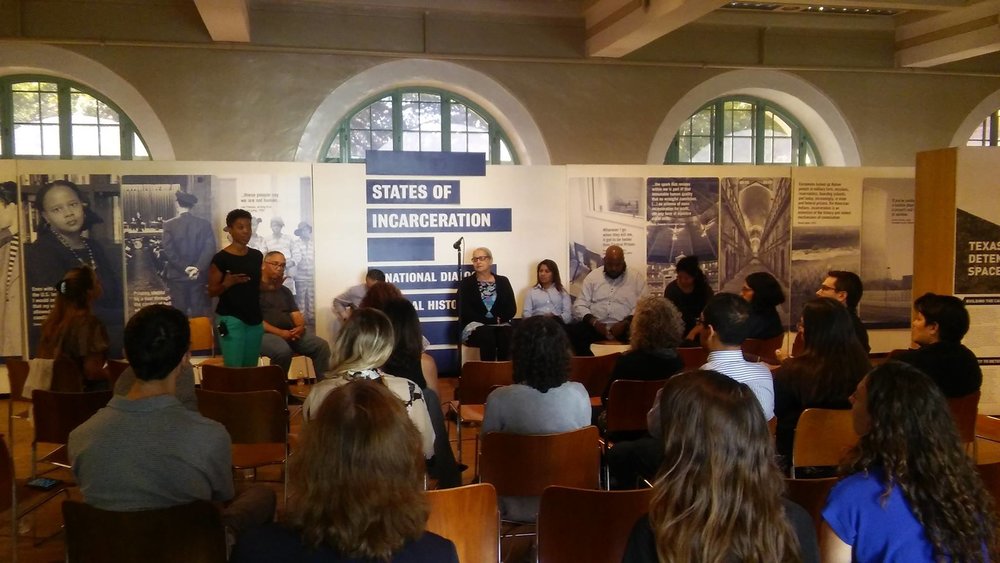 Work alongside community members to collaborate on creative strategies to strengthen
communities while improving our criminal justice system.
Work alongside community members to collaborate on creative strategies to strengthen
communities while improving our criminal justice system.
Hear from storytellers who have been personally impacted by mass incarceration, and are interested in rehabilitation. Following the stories, audience members will be invited to participate in an interactive design process where community leaders and members collaborate on creative strategies to strengthen communities while improving our criminal justice system.
Through facilitated dialogue, we will form connections to create healing, strengthen community, and increase civic engagement.
Click to sign up to participate in the dialogue or RSVP to mdocs@skidmore.edu
2 p.m.–2:45 p.m.
Gallery Talk: Closing a Prison Deferring a Dream
Payne Room, Tang Museum
Join Eric Morser (History Department) and student curators Deven Catalano, Meaghan McDonald and Isaac Selchaif of States of Incarceration for an introduction to the exhibition and their work on the impact of Mount McGregor’s Rehabilitation Program. The students will discuss how they became involved in the project, their efforts to reconstruct the history of Mount McGregor, the power of oral history to reveal the prison's hidden stories, and how they transformed a story of reform dreams into a museum exhibit.
3–5 p.m.
SCREENING Rikers: An American Jail and Q&A with
former Rikers cellmates Johnny Perez and Damian Stapleton
Somers Room, Tang Museum
Rikers Island is New York City’s largest jail. It has also been ranked as one of the 10 worst jails in America. Of the more than 7,500 people detained at Rikers Jail on any given day, almost 80 percent have not yet been tried. Rikers brings you face to face with men and women who have endured incarceration at Rikers Island. Their stories, told direct to camera, vividly describe the cruel arc of the Rikers experience. Produced by Schumann Media Center, Inc. and Brick City TV LLC, in association with Public Square Media, Inc., Executive Editor Bill Moyers. For more see Rikers: An American Jail. On May 19, 2017, Bill Moyers screened and discussed the film at the Commonwealth Club (California). Listen here to the conversation.
Reception follows the Q&A.
POETRY LAB with Cara Benson, Sean Dalpiaz, and Johnny Perez
Thursday, October 5, 7 p.m., Atrium
Join Cara Benson, a Skidmore graduate who offered poetry classes at Mount McGregor for eight years, for an evening of poetry-making and sharing. Former students Sean Dalpiaz and Johnny Perez join her.
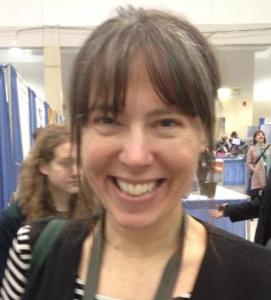
Benson earned an MFA in creative writing from Goddard College and teaches creative writing in the graduate program at Prescott College and is program manager for the Millay Colony for the Arts. She has been a visiting writer for the New York State Writers Institute, Rhode Island School of Design, Evergreen College, Kelly Writers House at the University of Pennsylvania, Stonecoast MFA, and Toronto New School of Writing. Her stories, poems, essays, and book reviews have been published in the New York Times, Boston Review, Best American Poetry, the Brooklyn Rail, Electric Literature, and elsewhere. Benson is at work on her second book, an autofiction set in late capitalism. See www.carabenson.com for more information.
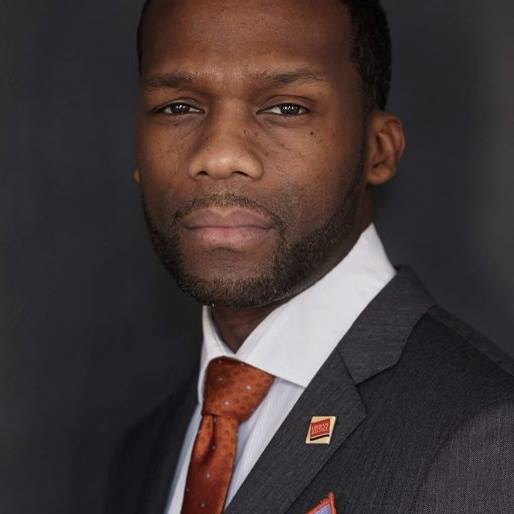
Perez is the Urban Justice Center's Mental Health Project safe reentry advocate and was appointed to the New York State Advisory Committee to the U.S. Commission on Civil Rights. The advisory committee investigates civil rights concerns in the state and reports to the commission, which then issues recommendations to the U.S. Department of Justice for further action. Perez experienced solitary confinement firsthand, spending three years of a 13-year sentence in solitary. In spite of his incarceration, he completed two years toward his bachelor’s degree while in prison before his release in 2013. He continued his education while working full-time since March 2041 for the Urban Justice Center Mental Health Project, assisting people with mental illness who are reentering the community from jail or prison to obtain benefits and services for successful reentry.
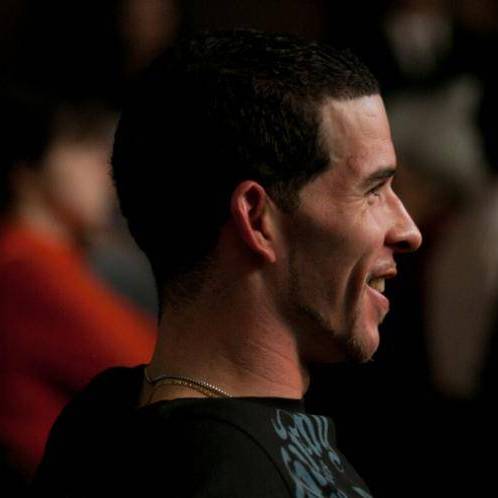 Seán Dalpiaz is a change agent. Incarcerated for almost eight years, his passion for
writing was reignited through a weekly poetry class taught by a civilian volunteer.
This reignited fire produced several published pieces of poetry while Dalpiaz was
incarcerated and crossed into the free world in his work with foster care youth and
other overlooked populations through direct service, advocacy, and arts rehabilitation
programs. Click here for three of his poems.
Seán Dalpiaz is a change agent. Incarcerated for almost eight years, his passion for
writing was reignited through a weekly poetry class taught by a civilian volunteer.
This reignited fire produced several published pieces of poetry while Dalpiaz was
incarcerated and crossed into the free world in his work with foster care youth and
other overlooked populations through direct service, advocacy, and arts rehabilitation
programs. Click here for three of his poems.
Cosponsored by the English Department.
ACCELERATOR SERIES DIALOG
with Elizabeth Hinton, Duron Jackson, and Johnny Perez and curator Isolde Brielmaier
Friday, October 6, 7 p.m., Atrium
Join Tang Curator at Large Isolde Brielmaier as she moderates a discussion with Harvard historian Elizabeth Hinton, artist Duron Jackson, and activist Johnny Perez on the subject of mass incarceration, ideas of mobility and immobility (social, economic, political), and the prison industrial complex, specifically as they relate to the recent and current political and social climate in the U.S. Particular attention will be given to how these issues are made visible in today’s culture as well as the social and political implications of these images.
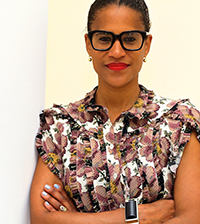 |
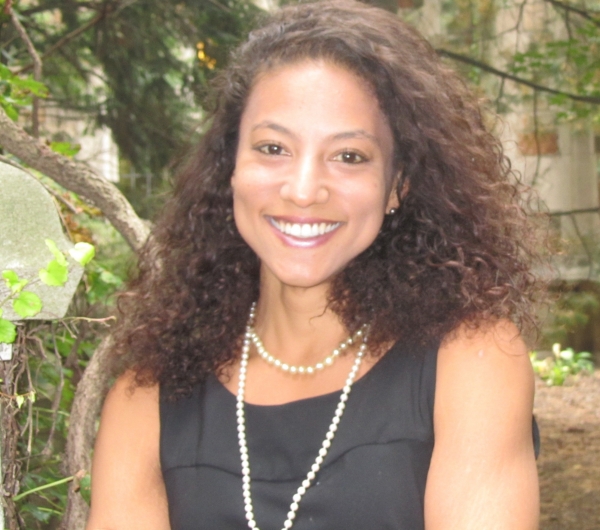 |
 |
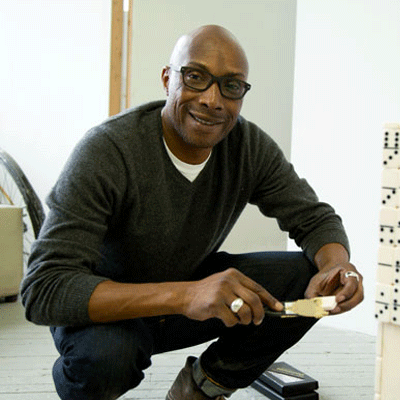 |
Elizabeth Hinton: Assistant professor of history and of African and African American studies at Harvard University. Her research focuses on the persistence of poverty and racial inequality in the twenty-first century United States. Her new book, From the War on Poverty to the War on Crime: The Making of Mass Incarceration in America, was published in 2016.
Johnny Perez: The safe reentry advocate at the Urban Justice Center Mental Health
Project (MHP), a nonprofit law firm providing pro bono legal services to underserved
population in NYC. Specifically, he works directly with people with mental illness
and histories of incarceration. Perez is a member of the 2017 Just Leadership USA
Leading with Conviction Program and is now in the process completing his first nonfiction
book: Uncuffed: Reflections on Criminal Justice After 13 Years of Incarceration.
Duron Jackson: A multidisciplinary artist who explores the social interrelationships
of “blackness” within the broader context of contemporary culture. Duron’s works focus
on social and political histories in relation to mass incarceration, constructions
of criminality, and state surveillance in the United States.

